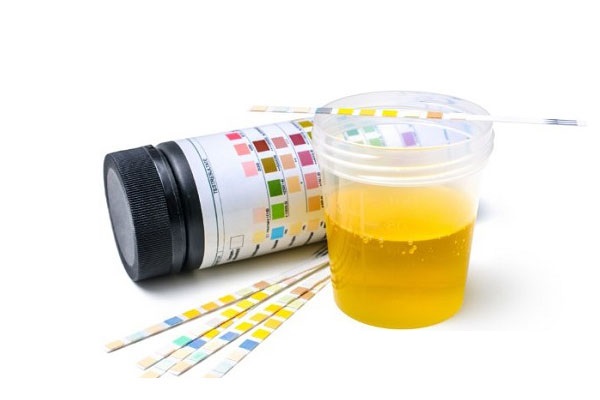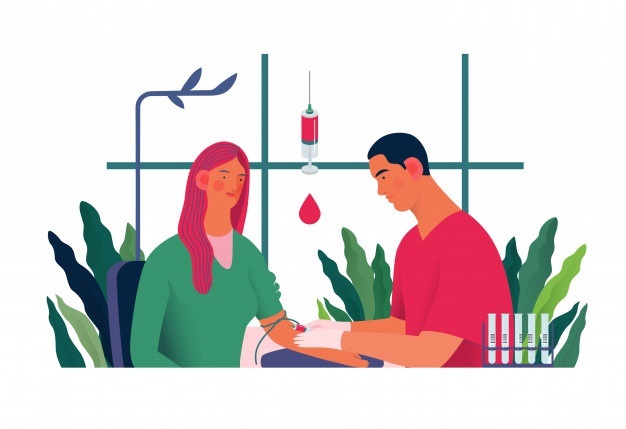Everything you need to know about drug testing CBD and THC
Despite the fact that people in Canada can absolutely legally enjoy a variety of cannabis products, including edibles, oils, topicals and many more, marijuana consumption can still be an issue. There are many situations where you might face the necessity to pass a drug test. It may be an employer who doesn’t want to hire those employees who get high and will ask the applicant to pass the pre-employment drug testing to fill the position. If you fail a drug test the chances to get a job are quite slim, though you always can ask an employer to repeat the test or apply later. Actually, every one out of ten workplaces in Canada requires drug testing.
Among the most likely places where the HR department might ask the applicant to go through a drug test are government bodies, hospitals, security, construction companies, aerospace & defence enterprises, transportation and logistics companies. Finally, athletes may have to undergo a procedure of drug testing too.
What is urinalysis
Saliva, hair and blood can be analyzed for drugs but the most common form of drug testing in Canada is a urinalysis or immunoassay drug test. This test analyzes urine and shows the presence of such drugs as cocaine, opiates, amphetamines and, well, cannabis too.
According to Canadian law, employers have the right to prohibit workers from being intoxicated at their workplace and there’s some reason in it. Nobody would want a surgeon or a pilot who is really high while performing duties. The problem is that such a drug test as IA urine test can’t detect whether a person is under the influence of a drug at the time of the test. The IA test can’t show when you last used cannabis or how much you used it. IA test is fast and cheap and only reacts to metabolites of THC in your sample that can stay in the body for days and sometimes weeks after last use. So how much time does it take to get rid of THC metabolites to pass this test successfully?

Marijuana can be detected up to 3-5 days after the last use by infrequent users. Heavy use can be detected 1 to 15 days and chronic users as well as obese ones may show positive results for cannabis up to 30 days. The problem is that the detection time varies from individual to individual due to the fact that every person has the unique speed of metabolism. Other factors such as second-hand smoking can contribute to the false-positive result because the test is very sensitive. But it doesn’t mean you have to be totally clear. To test cannabis-free your urine needs to contain less than 50 ng/ml of the main THC metabolite called THC-COOH.
Are there more sensitive tests?
Gas Chromatography-Mass Spectrometry analysis or GC-MS test is even more sensitive and besides that, it can show how much cannabis you have used. It can determine the quantity of cannabis metabolites in the given sample. This test is three times more sensitive than the standard IA urine test and can detect the presence of as low as 15 ng/ml of THC-COOH in the sample. But usually the samples of people who failed a IA urine test are analyzed again with the help GC-MS to detect whether the primary test was accurate or not.
Will CBD product make me fail a drug test?
If you work in a highly regulated or monitored industry then it might be an issue for you whether CBD products such as CBD oil show up on a drug test. Here are the next few facts about CBD and drug testing.
CBD or cannabidiol is not the chemical that drug tests such as IA test or GC-MS made to react to. These tests are aimed to detect only the metabolite of the psychoactive component of cannabis – THC. But if your company might subject you to drug testing you need to be cautious of what is contained in your CBD product that you use.
Some CBD products such as full-spectrum CBD oil do contain all the substances found in the cannabis plant – most notably, traces of THC, and also terpenes. People who use full-spectrum CBD products enjoy the advantage of the so-called entourage effect while not actually getting high. Commercial hemp-based CBD products usually contain only trace amounts of THC, so most full-spectrum CBD oil users won’t fail a drug test. However, there have been documented cases when CBD users tested positive for THC due to the fact that everyone’s metabolism works in a unique way. The test results also depend on the dosage. The doses of full-spectrum CBD exceeding 5 to 20 mg per day may show the presence of THC in the sample.
To avoid this problem altogether before the test it’s better to switch from consuming full-spectrum CBD product to broad-spectrum, containing all the components of the cannabis minus THC, or switch to CBD isolates containing exclusively cannabidiol.
What about THC-infused topicals?
Using THC topicals is growing in popularity because these products are known for their beneficial qualities for health such as treating muscle pains, aching joints, arthritis and so on. However, the use of such beneficial products might make you feel worried whether it can influence the results of a drug test. The short answer is no, so there’s no need to worry. Your skin represents a very good barrier between the outer world and your bloodstream. The thing is that to test positive for THC you need to have THC metabolites in your urine where it gets from your bloodstream. In other words, it’s highly unlikely to fail a test after using THC topicals unless you’ve swallowed it.

Can I fail a drug test any other way?
The best strategy to successfully pass a drug test is to avoid inhaling or ingesting products containing THC. If you’re using CBD oil, it’s better to switch to isolates since it’s guaranteed contains 0% of THC. Also, mind that you should avoid even second-hand smoking because recent studies have shown that the amount of THC involuntarily inhaled in a company may result in a failed drug test. And though the chances to detect the traces from second-hand cannabis smoke in your sample are not very high it’s better to be 100% confident before you pass a drug test.

